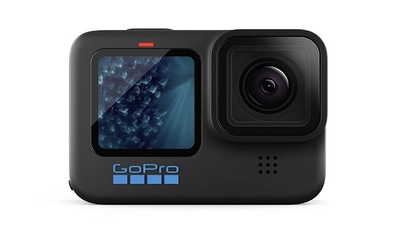EPOS plans to launch intelligent audio, video devices in India soon, shares India Sales Director Sudeep Roy
"We are committed to investing in the Indian market; starting with our office located in Bangalore along with a warehousing facility," said Sudeep Roy.

The Covid-19 pandemic has changed the world as we have known so far. Right from working and studying patterns to the tools, both hardware and software, needed to function amid the new normal, everything has changed. This list includes video conferencing tools such as Microsoft Teams, Google and Zoom that can now accommodate more participants in a single session and more efficient personal computers that can handle the computational bulk load. It also includes audio-based tools, both algorithmic solutions and hardware-based solutions, that not only enhance the overall communication but also make it more efficient by mitigating disrupting factors such as poor sound quality, background noise, and even signal issues.
Of lately, we have seen a trend wherein tech companies have started embedding features for addressing some of these issues in the form of software updates. Video conferencing platforms these days offer features such as active noise cancellation (ANC) and artificial intelligence (AI)-based noise reduction to enhance the overall quality of the conference calls. Needless to say that audio plays an important role in today's work from home environment and that it will continue to do so even as educational institutions and companies migrate towards a hybrid working environment as the number of Covid-19 cases reduce.
In the backdrop of the ongoing changes, we interacted with EPOS India's Sales Director Sudeep Roy to understand the changes that the pandemic has brought on the audio quality of devices and video conferencing platforms. We also interacted with him to understand how his company was leveraging the current trend to provide better software solutions in India and elsewhere. Here are excerpts of our conversation with Roy...
What impact is the hybrid working culture having on working professionals and on students? How is it different from the pre-pandemic era? What according to you is the relevance of good audio quality products in today's hybrid working environment?
The pandemic has fast-tracked the working and learning from home culture by leaps and bounds. Companies and educational institutions have revamped their models and adopted methods of communication that were previously unimaginable or have very low adoption rates. The culmination of many technologies such as the internet, cloud, and mobile devices such as laptops and phones has been the bridge that has helped the world cope with this radical change.
The role of audio and video solutions has always been crucial across industries, but never has it been as important as it has become since the onset of the pandemic. Especially in a country like India, working and learning was mostly direct, audio and video equipment were used but never on such a massive scale...COVID has played the role of a catalyst, advancing the field of audio and video solutions by years...The relevance of good quality audio is at an all-time high and with the second wave that India has just witnessed, it is clear that the hybrid working scenario will stay even after the pandemic is over, meaning a rise in the demand of audio and video solutions.
What is the change in demands (both hardware and software) by offices and individuals that you have noticed in thecase of the pre-pandemic era vs the pandemic time? Are there any new audio products that have emerged especially to cater to the requirements among the pandemic? If so, what?
In the past one and a half years, the basic setup of a workstation has changed for most of the people in the world. The radical transition of working from cubicles/ desks to homes has paced the workplace transformation by years ahead. This has led to an increase in relevance and thereby demand of certain hardware and software solutions and has led to further innovation in audio devices among other communication tools.
The laptop and PC sales in the past year have been the highest ever in history. Needless to mention, increasing the demand of audio devices to ensure seamless business operations across geographical boundaries. For companies, the focus of the past year has been on finding collaboration tools that are secure while being easy to deploy, manage, and monitor.
Pre-pandemic, we know that employees lost an average of 29 minutes per week due to poor sound quality, interruptive background noise, and signal issues on voice and video calls.
Looking ahead, there are several exciting concepts and developments on the horizon - we can expect artificial intelligence to become increasingly embedded in audio solutions, as well as solutions that provide augmented hearing and an increase in demand for voice-controlled devices. Day-to-day use products for professionals and students such as wireless, ANC (Adaptive Noise Cancellation) enabled headphones and smart speakers are visible examples of such products that help adapt perfectly to the hybrid workplace scenario.
How has the personal usage of audio products changed amid the pandemic?
The personal usage of audio products has dramatically changed amid the pandemic. This has resulted in an increase in expenditure on audio products, both personally and professionally.
Be it for entertainment purposes or for work/ learning, audio consumption has seen a rise in the past year. Content consumption platforms such as podcasts and audiobooks have gained popularity in the past few years as well.
What are the new market segments that you have identified during the pandemic? And what are your existing and planned products to cater to them?
The pandemic has changed the business communication landscape for good...Our IMPACT and ADAPT range of products enables an office worker to do just that [manage their jobs from remote locations without hampering their productivity], but from home. The noise-canceling microphone ensures that the background noises generated at home are not transmitted to the listener, and the ANC allows them to concentrate on the task at hand.
Our upcoming product to be launched in India (timeline is to be confirmed), the EXPAND Capture 5 is an intelligent speaker for Microsoft Teams Rooms that empowers your meeting participation. It is among the first intelligent speakers on the market, with an advanced voice recognition system that can identify up to 10 in-room participants in a Microsoft Teams Rooms meeting, capable of storing each user's data privately while ensuring security. The intelligent speaker is also able to provide transcripts allowing everyone to focus on the meeting and not taking notes.
What are the upcoming audio technologies that will transform the usage and standards in the coming years? And what role are you playing in it?
Looking ahead, there are several exciting concepts and developments on the horizon. Voice-controlled products were one of the most recent wins for the industry. In the future, we can expect an increase in demand for voice-controlled devices. Along with this, embedding artificial intelligence in audio solutions, as well as solutions that provide augmented hearing are technologies that will transform the usage and standards in the coming years.
Our team at EPOS is working towards developing solutions for the future's needs. While many technologies are at a nascent stage of development, EPOS AI, our machine learning system is already available in many of our products enabling premium state-of-the-art audio solutions for our customers.
AIoT products are gaining popularity these days. What is the role that audio will play as the adoption of this technology increases? What are your plans in this domain?
...We implemented EPOS AI - a machine learning system embedded in EPOS audio devices that processes audio and makes decisions independently. With advanced beamforming and noise reduction algorithms working together, this empowers the device to automatically adapt to one's voice while studying your sound environment.
Voice too plays a vital part in the development of our products. To be up to the mark in that aspect, we have developed EPOS Voice which improves one's speech intelligibility and provides for a better conversation by creating an acoustic lens to focus on the speech. By eliminating remaining noise disturbances, it ensures a more natural reproduction of the human voice. Our products such as the EXPAND CAPTURE 5 and the ADAPT 660 are AI-enabled products that enable seamless transition between locations and best-in-class audio quality, enabling outstanding concentration and collaboration, anytime and anywhere.
How has your growth been in India so far?
EPOS's growth thus far in the Indian market has been exciting and rewarding...We are growing at a terrific pace in India and our aim remains to devise state-of-the-art audio and video solutions, essentially to transform the way we communicate in the ‘new normal'.
What are your future plans for the Indian market?
India is a key market for EPOS. The response that we have witnessed in the first six months of our inception here has been no less than overwhelming. Our plans in the near future include introducing additional intelligent audio and video devices that aim at increasing business productivity and bringing people closer around the world.
We are committed to investing in the Indian market; starting with our office located in Bangalore along with a warehousing facility supported by a wide network of channel partners across India.
Catch all the Latest Tech News, Mobile News, Laptop News, Gaming news, Wearables News , How To News, also keep up with us on Whatsapp channel,Twitter, Facebook, Google News, and Instagram. For our latest videos, subscribe to our YouTube channel.


























